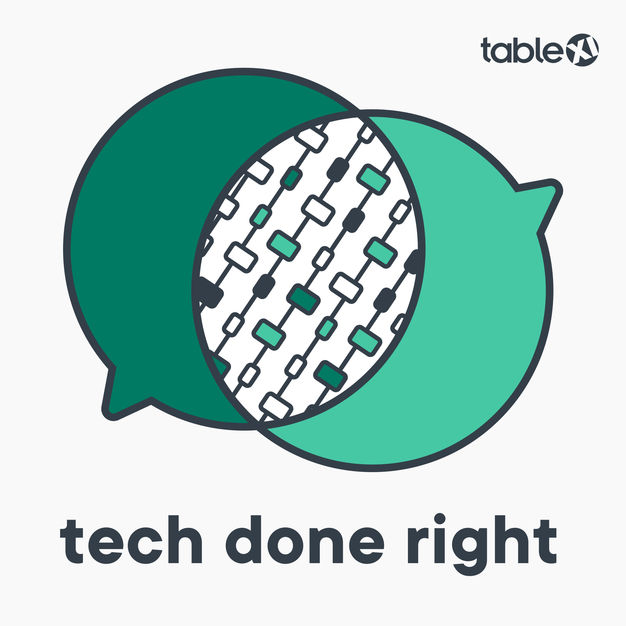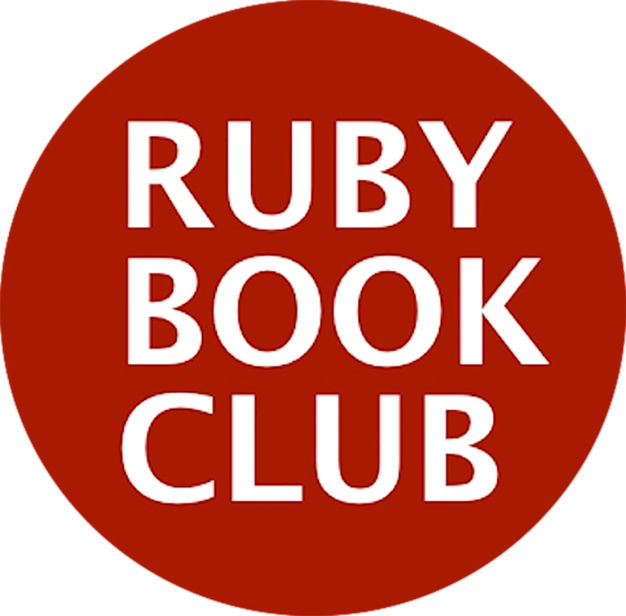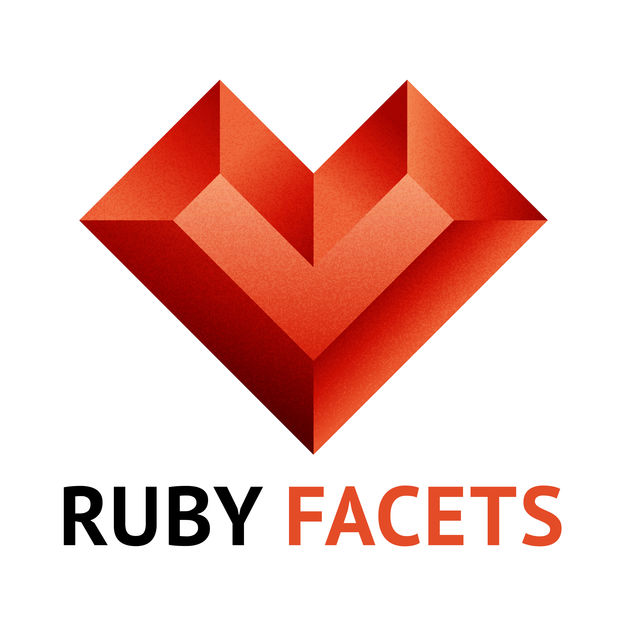
Tech Done Right
Table XI
The Tech Done Right podcast is a show by and for people who care about what they build. We don't just build software, we build teams, companies, careers, and communities.
- 49 minutes 52 secondsEpisode 72: Teaching Testing and Design
Teaching Testing and Design
Guests
- Betsy Haibel: CTO at Cohere. Blogs at betsyhaibel.com.
- Avdi Grimm: Head Chef at RubyTapas. Blogs at avdi.codes.
- Penelope Phippen: Works at Google, makes Rubyfmt, helps make RSpec, and is on the board of Ruby Central. Blog.
Summary
After the discussions on testing and design in episodes 68 and 69, I had so much I still wanted to talk about in testing, design, and teaching testing and design. So I convened a panel with previous Tech Done Right Guests Avdi Grimm, Betsy Haibel, and Penelope Phippen to help me think through all these topics. I was very happy to have all of them on the show, and I think it's a great conversation. Stay tuned until the very end for an update about the show.
Related Episodes with These Guests
- Avdi: 20 Years of Web Development, Ruby Tapas and Avoiding Code
- Betsy: Diverse Agile Teams, How Set Design Can Inform Software Architecture
- Penelope: Code Style and Community, Back in the Testing Weeds, In The Testing Weeds
Notes
00:50 - Previously On: Re: Testing
02:53 - Testing and Design
09:36 - Testing, But Not Developer Testing + Sliming The Test
13:41 - Why + How Did You Learn TDD?
20:24 - TDD: Not a Robust Process
24:19 - Rails + Unit Testing
27:41 - Is TDD really dead?
35:06 - Keeping Code In Your Head
37:32 - Approaching the Testing and Design of Code
38:59 - What would convince you to stop doing TDD?
Special Guests: Avdi Grimm, Betsy Haibel, and Penelope Phippen.
9 October 2019, 3:00 pm - 36 minutes 29 secondsEpisode 71: Supporting Innovation With Mike Todasco
Supporting Innovation With Mike Todasco
Guest
Mike Todasco: Senior Director of Innovation at PayPal
Summary
Today on the show we have Mike Todasco, the Senior Director of Innovation at PayPal. We talk about what innovation means at a company, and how to encourage innovation both if you are a PayPal sized company and if you aren’t. Mike also shares some information about PayPal’s internal innovation tournament and how they offer incentives for innovation.
Notes
01:38 - What does the Senior Director of Innovation at PayPal do?
02:32 - Why should companies innovate?
04:29 - Who should be innovating?
08:26 - Assisting and Guiding in Innovation
11:15 - Introducing Innovation to Companies and Teams: Vulnerability
16:06 - Encouraging Innovation
18:44 - The Concept of Global Innovation Tournaments
24:34 - Giving People Opportunity and Exposure
28:40 - Innovation Tokens
30:59 - Innovation For Small Companies
32:39 - Interesting Innovations
Special Guest: Mike Todasco.
25 September 2019, 3:00 pm - 33 minutes 6 secondsEpisode 70: How To Buy Software With Ashley Quinto Powell
How To Buy Software With Ashley Quinto Powell
Guest
Ashley Quinto Powell: Director of Business Development at Table XI.
Summary
Today on the show, we have Ashley Quinto Powell. Ashley and I have run a workshop together called How to Buy Software aimed at people who want to buy custom software but aren't sure what the process will be like. In this episode, we try to compress a four-hour workshop into a 45-minute podcast. Ashley will talk about what to expect from the sales process and then Ashley will interview me about what it's like to work with a development team. I hope you like it.
Notes
01:40 - How do you buy software?
02:47 - Common Misconceptions When Starting the Process
04:20 - Preparing for a Conversation About Buying Software
06:42 - Terminology To Know
Offshore / Nearshore
- Agile / Waterfall
- Time and Materials Contract / Fixed Contract
16:08 - Interacting with a Development Team
18:28 - Estimation
28:16 - Signs Things Are Going Well / Red Flags
Special Guest: Ashley Quinto Powell.
11 September 2019, 3:00 pm - 50 minutes 29 secondsEpisode 69: Teaching and Learning with Sandi Metz
Teaching and Learning with Sandi Metz
Guest
Sandi Metz:: Author of Practical Object-Oriented Development in Ruby and 99 Bottles of OOP. sandimetz.com
Summary
Today on the show we have Sandi Metz, author of Practical Object Oriented Design in Ruby and co-author of 99 bottles of OOP. I’ve literally been trying to get Sandi as a guest since we started recording the show and I’m thrilled that we’ve finally been able to connect. We talk about OOP and TDD, maybe going down a test-driven rabbit hole for a while, and also talk about what it’s like to teach and coach about OOP and TDD. I enjoyed this talk very much and I think you will, too.
Notes
02:46 - Keeping Up With Tech
04:58 - Object-Oriented Design
09:53 - Why do we write tests?
17:53 - Teaching Yourself TDD
22:11 - Procedures and Patterns
34:07 - CI
39:23 - Approaching TDD
44:49 - What should we be doing as a community to share knowledge?
Special Guest: Sandi Metz.
28 August 2019, 3:00 pm - 52 minutes 27 secondsEpisode 68: Pragmatic Programmer at 20 with Dave Thomas and Andy Hunt
Pragmatic Programmer at 20 with Dave Thomas and Andy Hunt
Guests
Dave Thomas and Andy Hunt: Authors of The Pragmatic Programmer and publishers of The Pragmatic Bookshelf.
Summary
I’m very excited to have Dave Thomas and Andy Hunt on the show today. Dave and Andy are the authors of the Pragmatic Programmer, which has a 20th anniversary edition that is out now, and they are the publishers of the Pragmatic Bookshelf, where they have (full disclosure) published my books a time or two. We talk about what’s changed in the new version, what being a Pragmatic Programmer means, whether there’s still a role for tech books, and how to make automated testing pragmatic. Somehow I avoid telling the slightly embarrassing story about the bad impression I made the first time I met Dave. Enjoy.
Notes
02:52 - Revisiting the Book 20 Years Later and What Has Changed/Hasn’t Changed
06:41 - What it Means to be a Pragmatic Programmer
08:39 - Software Development as a Team Sport
12:56 - Extreme Programming Explained and The Pragmatic Programmer; Similarities and Differences
22:09 - Finding The Pragmatic Programmer Voice/Tone
24:55 - Roles for Dead-Tree Technical Books
30:36 - How To Make Automatic Testing Pragmatic
Special Guests: Andy Hunt and Dave Thomas.
14 August 2019, 3:00 pm - 21 minutes 16 secondsEpisode 67: Civic Software with Alex Pedersen and Abhi Nemani
Civic Software with Alex Pedersen and Abhi Nemani
Guests
Alex Pedersen: Co-founder of Polco.
Abhi Nemani Founder of EthosLabs.
Summary
This week, we have Alex Pedersen of Polco and Abhi Nemani of EthosLabs. They're both involved in various uses of technology to increase civic engagement. We'll talk about how technology can improve the public sector and why technologists should be interested in public sector work.
Notes
02:09 - Technology and Civic + Political Engagement
06:14 - Risks of Making the Government More Technological
10:01 - Balancing Conversations Amongst Citizens
12:18 - Building and Designing Software for Government vs Commercial Use
14:39 - Getting Involved in Government, Civic Engagement, and the Public Sector
Special Guests: Abhi Nemani and Alex Pederson.
31 July 2019, 3:00 pm - 38 minutes 26 secondsEpisode 66: Stories and Community with Ariel Caplan
Stories and Community with Ariel Caplan
Guest
Ariel Caplan: Co-Host of Dev Empathy Book Club, Backend Developer at Cloudinary, and Flatiron School Alum. Personal Site
Summary
Our guest this week is Ariel Caplan. Ariel is a developer at Cloudinary and the Founder of the Dev Empathy Book Club. At RailsConf this year, Ariel gave a keynote about culture and stories using examples from Israeli and American children's literature. In our conversation, we focus on the stories that developers tell ourselves about who is successful, what it takes to be successful, and what people and skills are left out of those stories, and how we might be able to change them.
Notes
02:18 - Stories We Tell New Members of the Community
04:17 - The Myth of the Lone Genius
06:28 - How Stories Affect Day-to-Day Expectations on Teams
12:36 - Stories That Benefit Our Employers
16:11 - How We Treat New Developers
21:11 - “Real Programmers”
26:30 - Computer Science Education
31:07 - People Skills and Community
Special Guest: Ariel Caplan.
17 July 2019, 3:00 pm - 35 minutes 45 secondsEpisode 65: Managing Pain and Suffering at Work with Amy Newell
Managing Pain and Suffering at Work with Amy Newell
Guest
Amy Newell:: Director of Engineering at Wistia. Previous Director of Engineering at PatientsLikeMe. RailsConf 2019 - Failure, Risk, and Shame: Approaching Suffering at Work by Amy Newell
Summary
Our guest this week is Amy Newell. Amy is the Director of Engineering at Wistia, and she gave a talk at RailsConf this year entitled “Failure, Risk, and Shame: Approaching pain and suffering at work”. We have what I hope is an uplifting conversation about failure and pain, how to recognize it, and how to skillfully manage those feelings to be more resilient, prevent additional pain, and ultimately be more satisfied with your job.
Notes
01:56 - Why Use Words Like “Pain” and “Shame” When Talking About Work Experience
04:21 - Specific Kinds of Pain and Suffering at Work
07:31 - Mistakes People Make When They’re Dealing with Failure, Anxiety, and Shame
10:28 - Skillful Responses
17:37 - Mitigating Pain
21:57 - Skillful Responses (Cont’d)
25:04 - Mindfulness
30:34 - Feedback and Identity
- Thanks for the Feedback: The Science and Art of Receiving Feedback Well by Douglas Stone and Sheila Heen
- Paul Graham: Keep Your Identity Small
Special Guest: Amy Newell.
3 July 2019, 3:00 pm - 34 minutes 16 secondsEpisode 64: AI and Privacy with Bärí A. Williams
AI and Privacy with Bärí A. Williams
Guest
Bärí A. Williams: VP of Legal, Business, and Policy Affairs at All Turtles, a startup advisor in the tech industry, and a published author in the New York Times, WIRED, Fortune, and Fast Company. Bärí writes at bariawilliams.com.
Summary
Our guest this week is Bärí A. Williams, the VP of Legal, Business, and Policy Affairs at All Turtles. She provides legal guidance to startups working with Artificial Intelligence. Bärí was a keynote speaker at RailsConf this year, you can see the video at https://youtu.be/HBAra5J5c90. She and I talk about writing ethical terms of service, and how to collect and use data properly. We talk about facial recognition and other data mining and machine learning topics in the news, and how having a diverse user and testing base can prevent damaging mistakes.
Notes
01:48 - The Intersection of Law and Tech
03:16 - Writing Ethical and Clear Terms of Service
05:48 - Legal and Ethical Collection of Data
09:01 - Principles That Should Be in Ethical Codes of Conduct
10:38 - Combatting Algorithmic Bias in AI
- Conference Speaking and Diverse Perspectives with Carina C. Zona and Mark Yoon
- Carina Zona: Consequences of an Insightful Algorithm
14:15 - Facial Recognition Technology and The Importance of Diverse Testing
18:07 - Facial Recognition Technology and Preventing the Selling of Information
- Facial recognition creeps up on a JetBlue passenger and she hates it
- HUD Is Suing Facebook For Housing Discrimination
26:39 - Facial Recognition Technology, DNA and the Government
31:18 - Opting In and Out of Things Due to Privacy Concerns
Special Guest: Bärí A. Williams.
19 June 2019, 3:00 pm - 41 minutes 40 secondsEpisode 63: Software Consulting With Chad Pytel
Software Consulting With Chad Pytel
Guest
Chad Pytel: CEO, Co-Founder, and Developer of thoughtbot.
Summary
Our guest this week is Chad Pytel. Chad is the CEO of thoughtbot, which is a design and development firm known in the world for its support of open source projects like paperclip and shoulda. Chad and I talk about how to make short consulting projects work, the importance of hiring, why thoughtbot makes their internal guides public, and how they continue to be able to support open source. It's a great conversation about how thoughtbot approaches the world.
Notes
02:09 - How thoughtbot Works as an Integrated Design and Development Team
06:50 - Handling Discovery Phases and Product Design Sprints
11:40 - When Clients Aren’t a Good Fit and Setting Expectations
14:12 - Hiring for Values
21:05 - The thoughtbot Playbook
26:43 - Client Communication During Projects
30:48 - Investment Days and Supporting Open Source Projects
36:49 - Using Rails and Not Using Rails
Special Guest: Chad Pytel.
5 June 2019, 3:00 pm - 37 minutes 6 secondsEpisode 62: Food and Design Thinking
Food and Design Thinking
TableXI is now offering training for developers and products teams! For more info, email [email protected].
Guests
- Rex Chekal: Director of Digital Strategy and Product Designer at Table XI.
- Jessie Shternshus: Founder and Owner of the Improv Effect.
- Chemia Davis: Innovation Methods Conductor and Member of the Tyson Foods Innovation Lab.
- Santi Proano: Experimental Brand Dreamer for Yappah Foods and Member of the Tyson Foods Innovation Lab.
Summary
In this episode, we have a slightly different topic for Tech Done Right - food. Table XI has been working to adapt our design sprint process out of the realm of custom software and into more general product design. In particular, we've worked with Tyson Foods Innovation Lab on a few different projects including the creation of their Yappah brand which is designed to prevent food waste. In this episode, you'll hear from Chemia Davis and Santi Proano from Tyson, Rex Chekal from Table XI and Jessie Shternshus from the Improv Effect and we'll show you how we adapted design thinking and Agile process from software to food products.
Notes
02:58 - The Scope of Work Between Table XI and Tyson Foods Innovation Lab
04:08 - The Goal of the Innovation Lab
06:51 - Bringing Design Thinking to Product Development and CPGs
11:13 - Design Steps
17:14 - Facilitating Communication
22:05 - The Sprint Week Experience
26:40 - Next Steps After Sprint Week
29:32 - Learning From the Design and Coaching Process
Special Guests: Chemia Davis, Jesse Shternshus, Rex Chekal, and Santi Proano.
22 May 2019, 3:00 pm - More Episodes? Get the App
Your feedback is valuable to us. Should you encounter any bugs, glitches, lack of functionality or other problems, please email us on [email protected] or join Moon.FM Telegram Group where you can talk directly to the dev team who are happy to answer any queries.
 Ruby Book Club Podcast
Ruby Book Club Podcast
 Ruby Facets
Ruby Facets
 Greater Than Code
Greater Than Code
 Why Are Computers
Why Are Computers